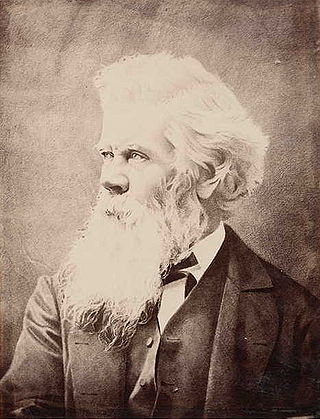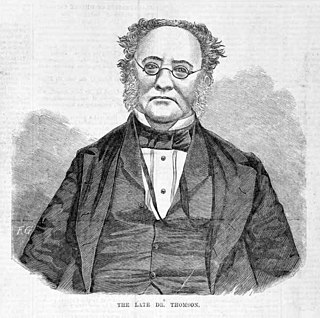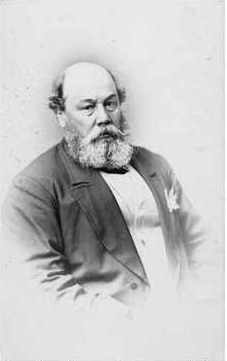
Sir Henry Parkes, was a colonial Australian politician and longest non-consecutive Premier of the Colony of New South Wales, the present-day state of New South Wales in the Commonwealth of Australia. He has been referred to as the "Father of Federation" due to his early promotion for the federation of the six colonies of Australia, as an early critic of British convict transportation and as a proponent for the expansion of the Australian continental rail network.

Henry Daglish was an Australian politician who was the sixth premier of Western Australia and the first from the Labor Party, serving from 10 August 1904 to 25 August 1905. Daglish was born in Ballarat, Victoria, and studied at the University of Melbourne. In 1882, he worked as a mechanical engineer but soon switched to working in the Victorian public service. He first stood for election in 1896 but failed to win the Victorian Legislative Assembly seat of Melbourne South. He then moved to Subiaco, Western Australia, where he found work as a chief clerk in the Western Australian Police Department. In 1900, Daglish was elected to the Subiaco Municipal Council and in April the following year, he was elected to the Western Australian Legislative Assembly as the member for the newly created seat of Subiaco, becoming one of six Labor members in the Western Australian Legislative Assembly. The party elected him as its whip, and he resigned from the Subiaco council on 1 May 1901. On 1 December 1902, Daglish was sworn in as mayor of Subiaco, having been elected the previous month.

William Clark Haines, Australian colonial politician, was the first Premier of Victoria.

John Basson Humffray was a leading advocate in the movement of miner reform process in the British colony of Victoria, and later a member of parliament.

Dr. Alexander Thomson was elected as the first mayor of Geelong and held the position on five occasions from 1850 to 1858. Thomson was the first settler in the area known as Belmont, a suburb of Geelong and called his homestead Kardinia, a property now listed on the Register of the National Estate.

Boyd Dunlop Morehead was a politician in Queensland, Australia. He was Premier of Queensland from November 1888 to June 1890.

Sir Arthur Blyth was Premier of South Australia three times; 1864–65, 1871–72 and 1873–75.

John Hubert Plunkett was Attorney-General of New South Wales, an appointed member of the Legislative Council 1836–41, 1843–56, 1857–58 and 1861–69. He was also elected as a member of the Legislative Assembly 1856–60. He is best known for the prosecution of the colonists who brutally murdered 28 Aboriginals in the Myall Creek Massacre of 1838, seven of whom were convicted and hanged.

Edward Timothy Hooley, usually known as E. T. Hooley or Tim Hooley, was an explorer in Western Australia, who in 1866 pioneered an overland stock route from Geraldton to the Ashburton River. He entered politics in later life, serving nearly three years as a Member of the Western Australian Legislative Council, then nearly six years in the Western Australian Legislative Assembly.

John Douglas was an Anglo-Australian politician and Premier of Queensland.

Sir Henry John Wrixon was an Australian barrister and politician.

James Newton Haxton Hume Cook CMG was an Australian politician. He was a member of the House of Representatives from 1901 to 1910, after previously serving in the Victorian Legislative Assembly from 1894 to 1900. He was a member of the anti-socialist parties and served as a minister without portfolio under Alfred Deakin.

Henry Gregory was an Australian politician. He was a Ministerialist member of the Western Australian Legislative Assembly from 1897 to 1911, representing the electorates of North Coolgardie (1897-1901) and Menzies (1901-1911). He was state Minister for Mines from 1901 to 1904 under George Leake and Walter James and Minister for Mines and Railways from 1905 to 1911 under Hector Rason, Newton Moore and Frank Wilson. He rose to become Treasurer from 1910 to 1911, a role that also entailed him acting as Premier if Wilson was absent, but lost his seat at the 1911 state election.

Charles Harper was a pastoralist, newspaper proprietor and politician in colonial Western Australia.
James Stewart Johnston was a Scottish-Australian businessman, newspaper owner and politician, a member of the Victorian Legislative Council November 1851 to December 1852 and the Victorian Legislative Assembly, October 1859 to August 1864.

Sir Francis Murphy was an Australian politician, first Speaker of the Victorian Legislative Assembly.
John Dennistoun Wood was an Australian politician, a member of the Victorian Legislative Assembly and, later, of the Tasmanian House of Assembly.

Hon. Patrick Perkins, J. P.,, nicknamed Paddy Perkins, was a brewer and politician in colonial Queensland. He was a Member of the Queensland Legislative Assembly and, later, a Member of the Queensland Legislative Council.

Charles Cowper was an Australian politician, pastoralist and senior public servant, the son of Sir Charles Cowper who served as Premier of New South Wales on five separate occasions between 1856 and 1870. During the period 1860 to 1865 Cowper was the elected member of various electorates in support of his father's political faction. In the late 1860s he invested in pastoral runs in south-west Queensland, which ultimately led to financial losses due to prolonged drought conditions. After a short stint as Police Magistrate at Bourke, Cowper was appointed as the Water Police Magistrate in Sydney. In 1874 he was appointed Sheriff of New South Wales, a position he held until his retirement in 1896.
William Sandover was a British hotelier and politician in South Australia, the father of Alfred Sandover MBE and great grandfather of Raymond Sandover DSO, ED.
















